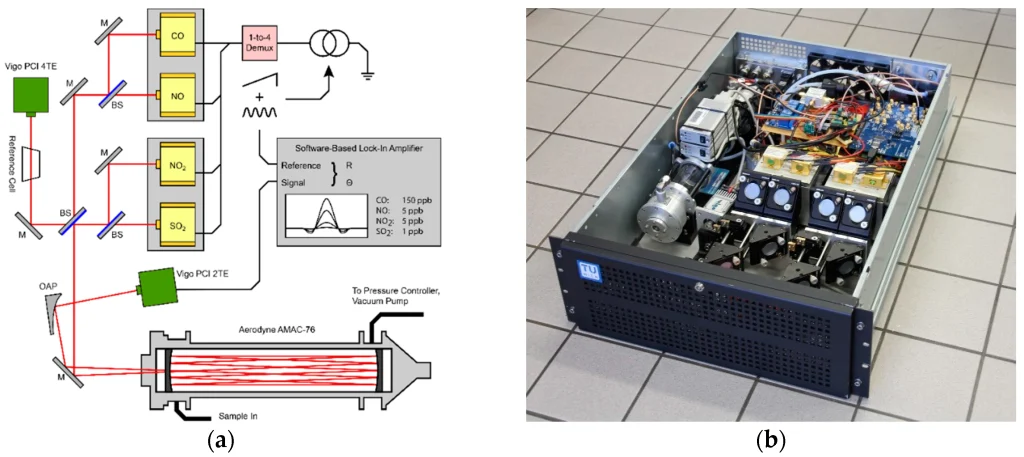We are delighted with the recent commissioning of a state-of-the-art quantum cascade laser absorption system for the measurement of carbon dioxide (CO2) in our plasma research. CO2 is an important species in a number of emerging plasma technologies. For example plasma conversion of CO2, from waste into valuable chemical products, such as fuels and chemicals, can replace fossil fuels and reduce the need for petrochemicals.
The system was purchased as part of an AMBER SFI funded SPOKE research project. The aim of the project was to “develop a novel process for selective area deposition for use in the semiconductor manufacturing industry. Selective area deposition is seen as a ‘grand-challenge’ in integrated circuit (IC) manufacture as it allows development of features on a substrate surface without the need for lithographic steps”.
Thin polymer films (< 5 nm) attached at silicon surfaces were selectively infiltrated with metal salts. Subsequent removal of the polymer using oxygen plasma resulted in metal oxide nanostructures at the surface. Small coupons sizes (~ 2 cm) combined with the thinness of the polymer films made detection of CO2 levels produced by the polymer removal challenging to detect against background CO2 levels in the system. The extreme sensitivity of the new CO2 detection system made this possible.
This new diagnostic technology will enable us to more accurately and precisely measure CO2 levels, which is crucial in understanding the processes of CO2 production and destruction within out plasmas. The quantum cascade laser absorption system is based on a design that utilises a semiconductor laser to measure the absorption of infrared light by CO2 molecules. This method is highly sensitive and can detect even small changes in CO2 levels with great accuracy. It will allow us to make measurements in a wide range of environments – from low pressure to atmospheric pressure plasma sources.
We would like to thank the researchers and technicians involved in the related research projects, along with our funding partners Science Foundation Ireland (SFI) and Horizon Europe through the Amber and PIONEER projects for their support.
